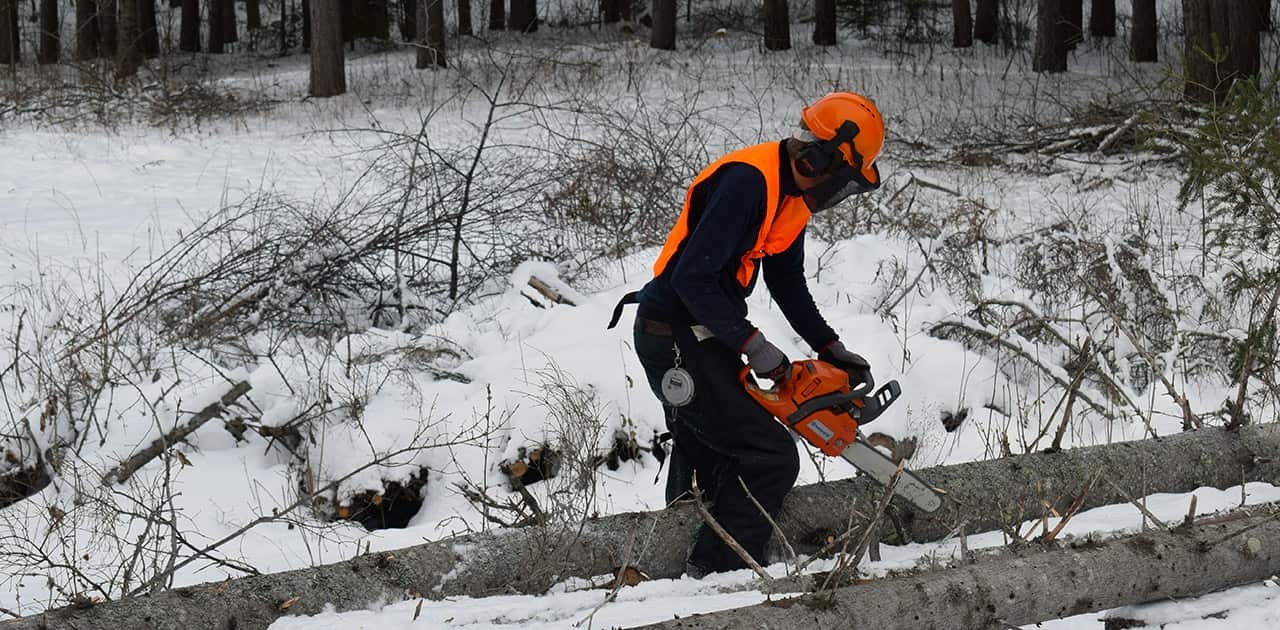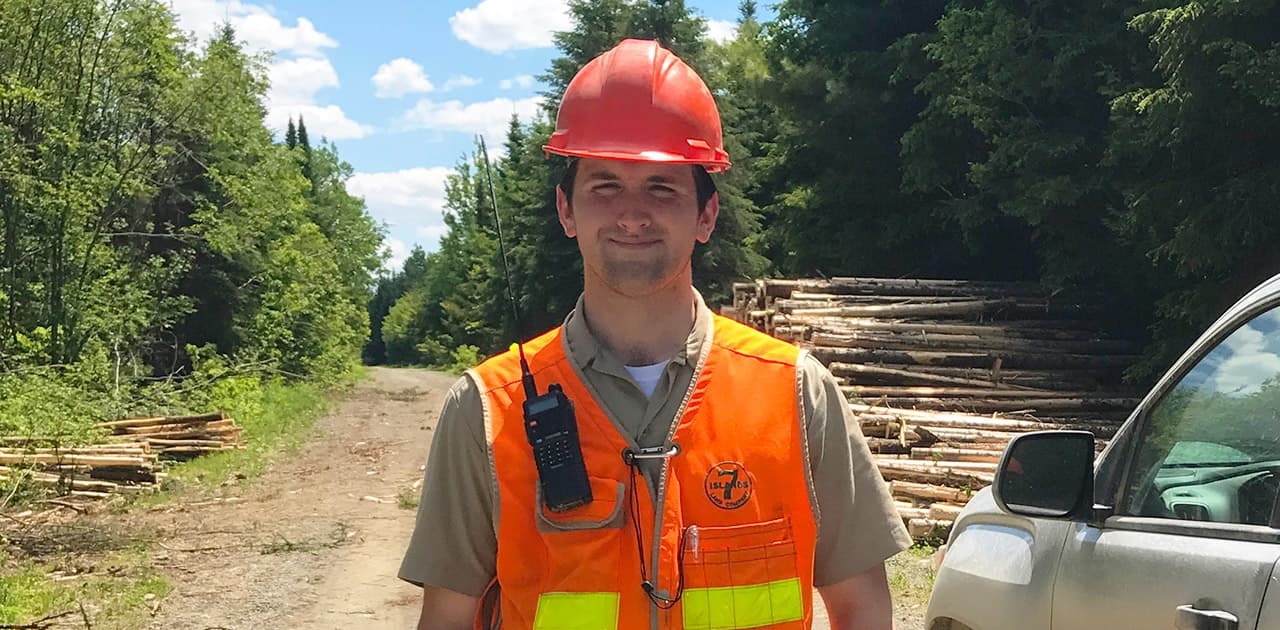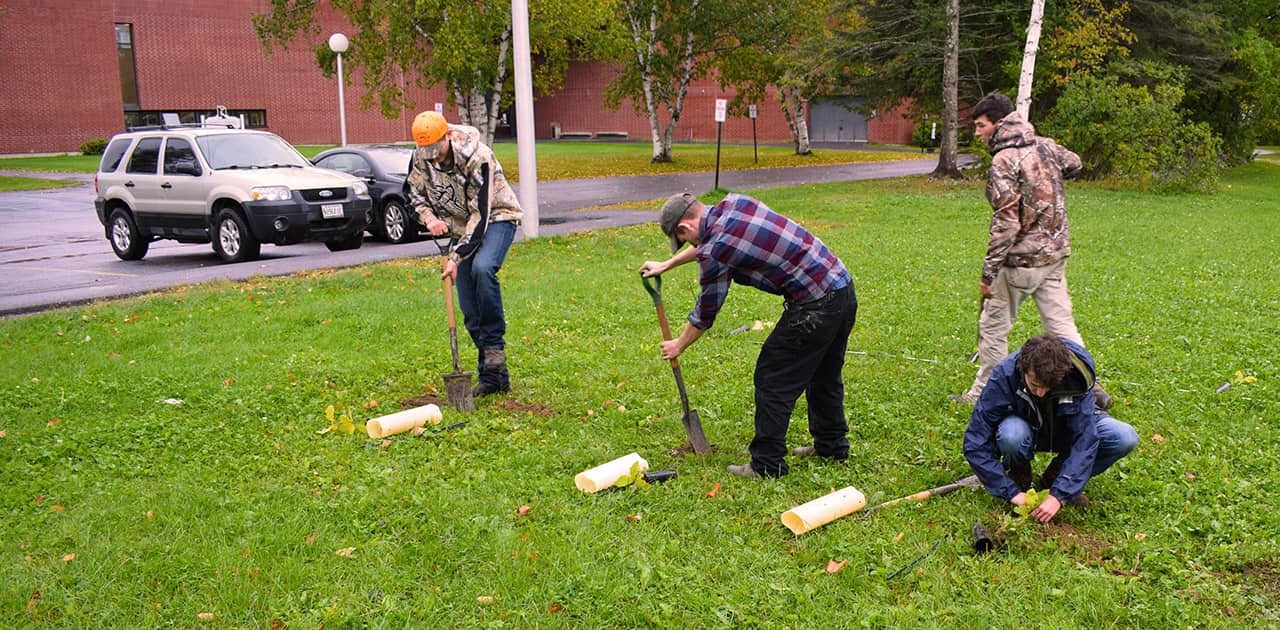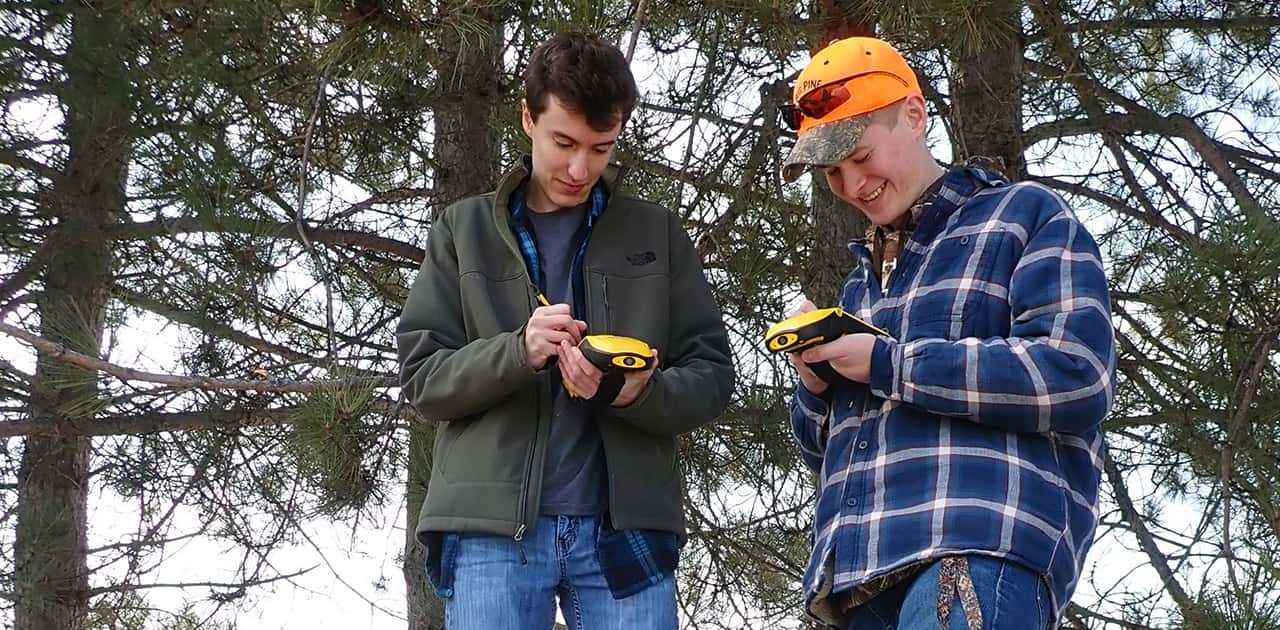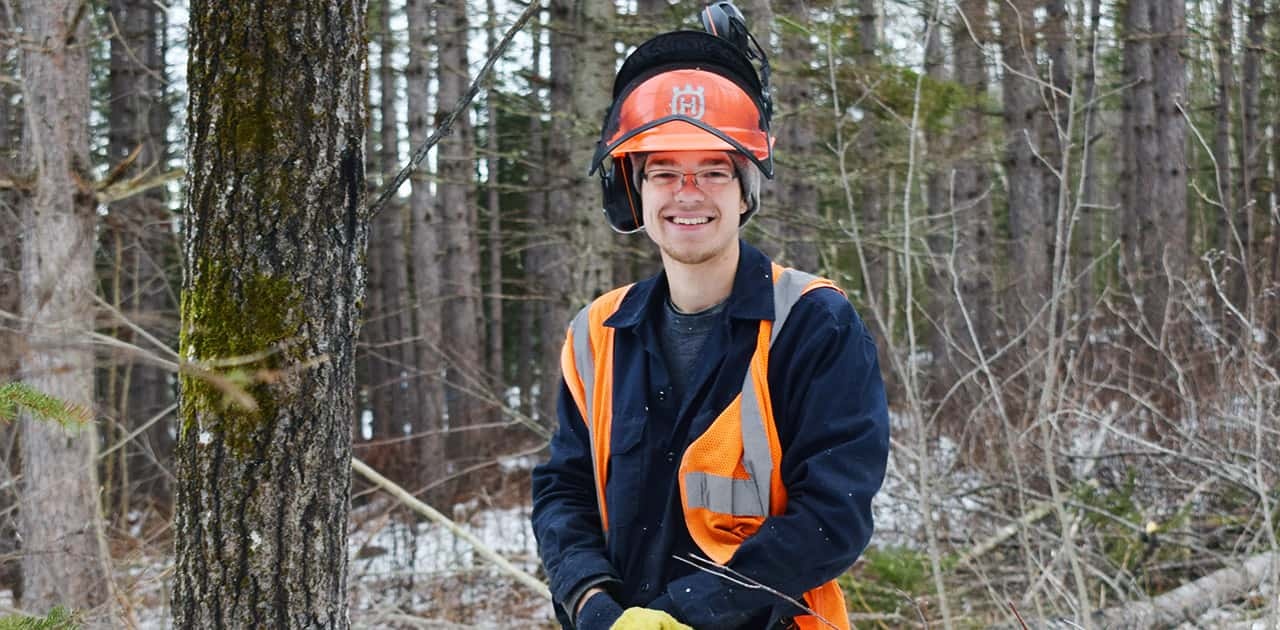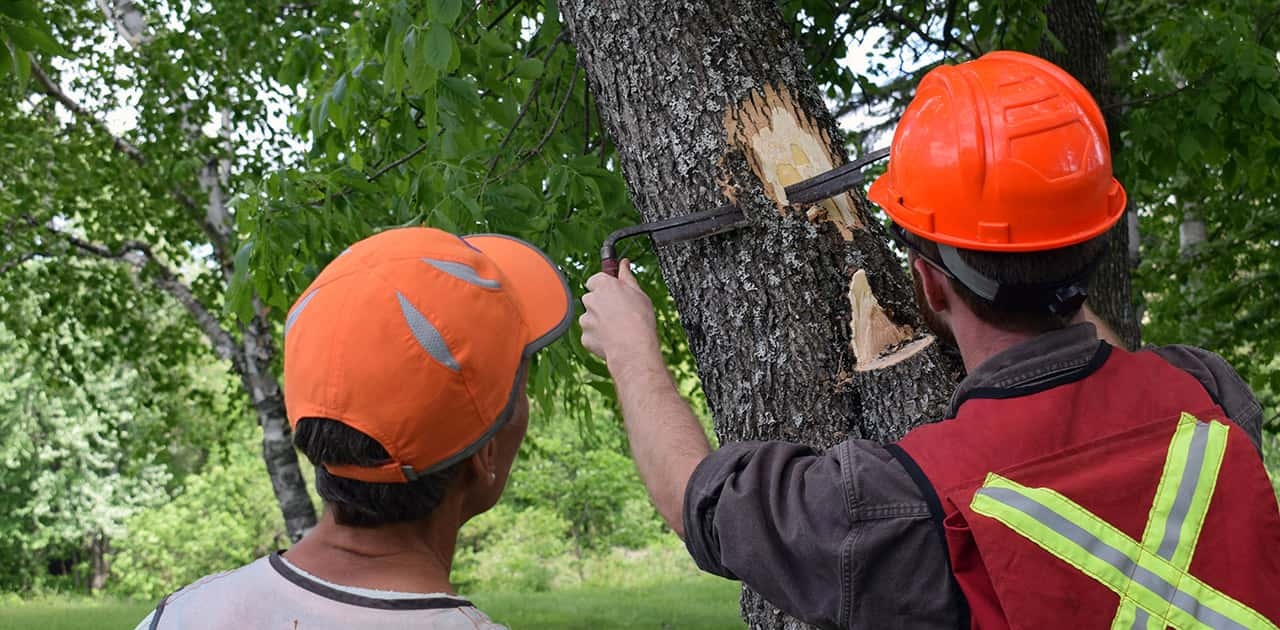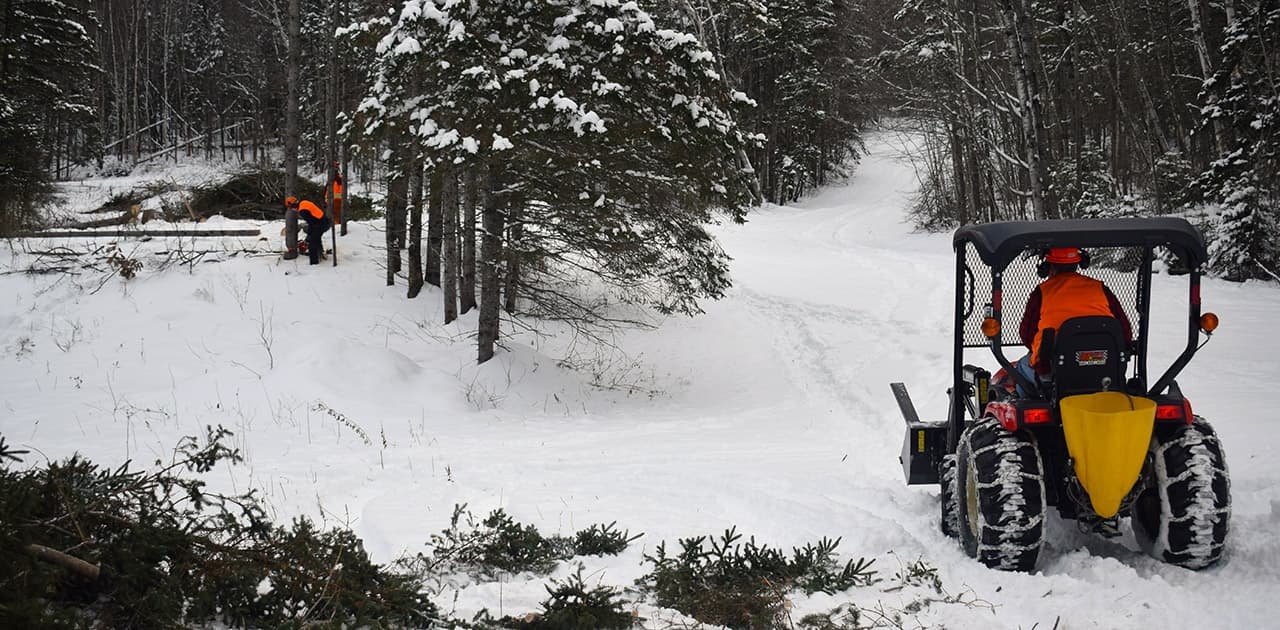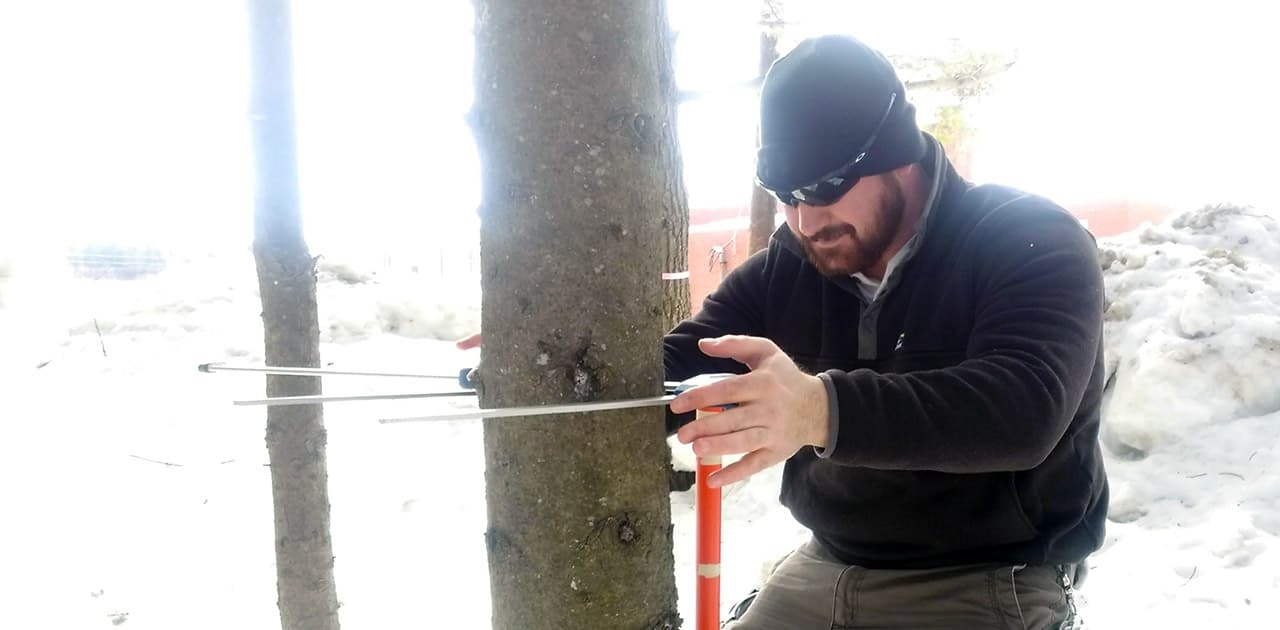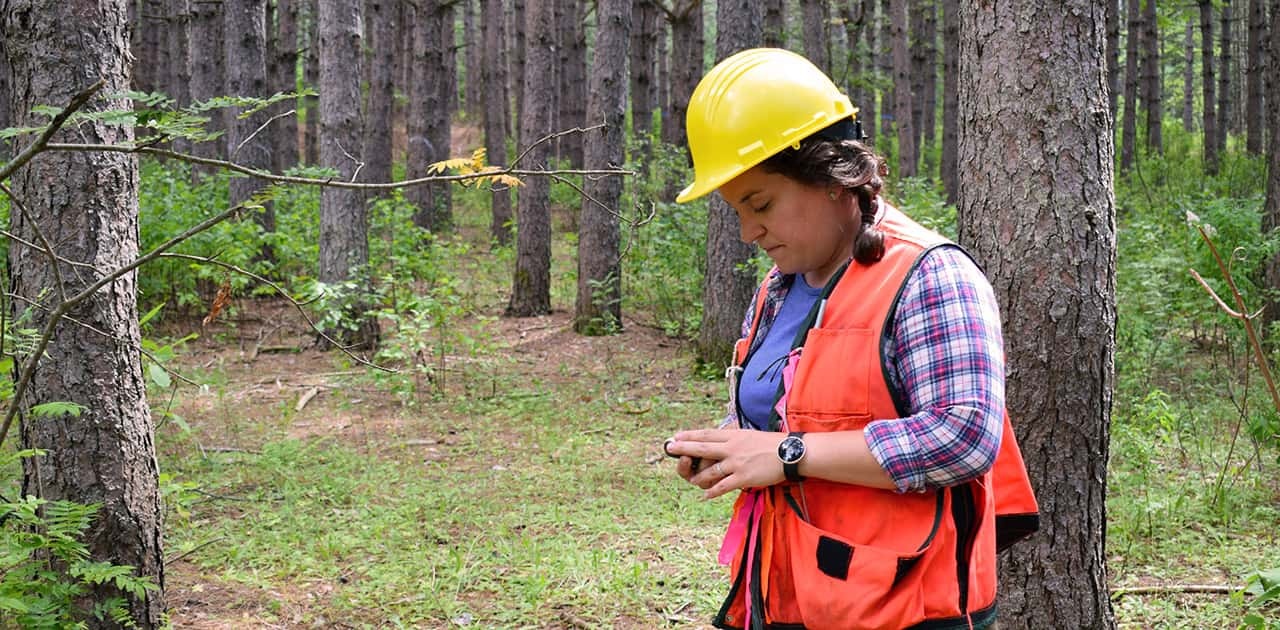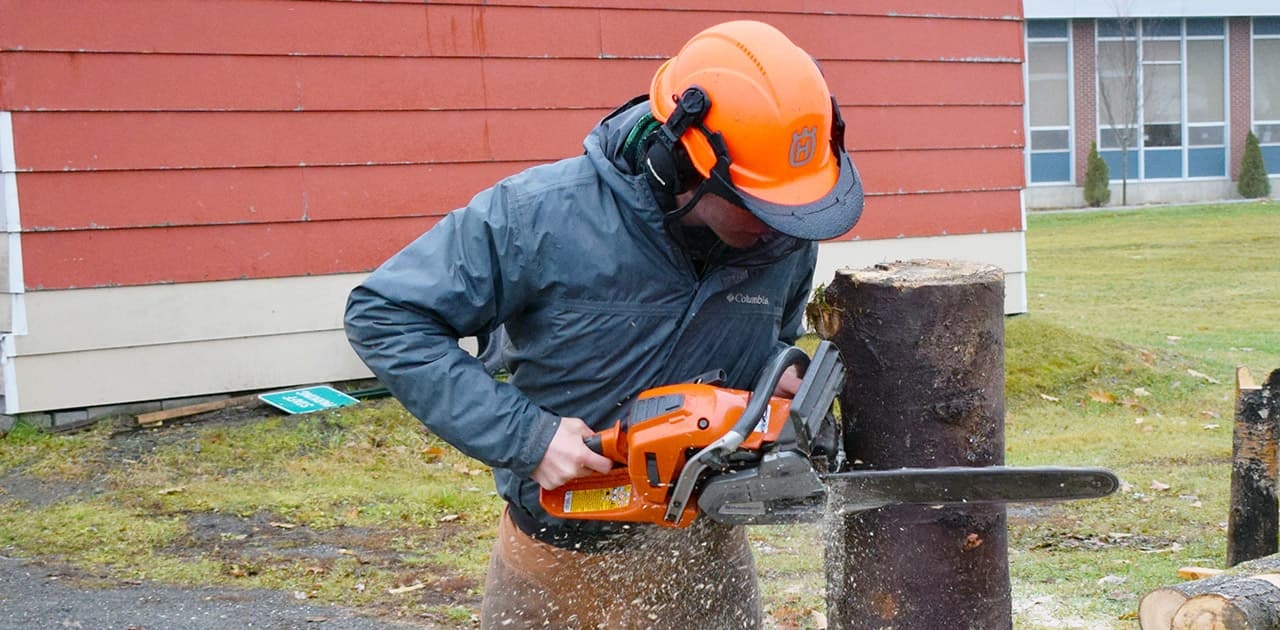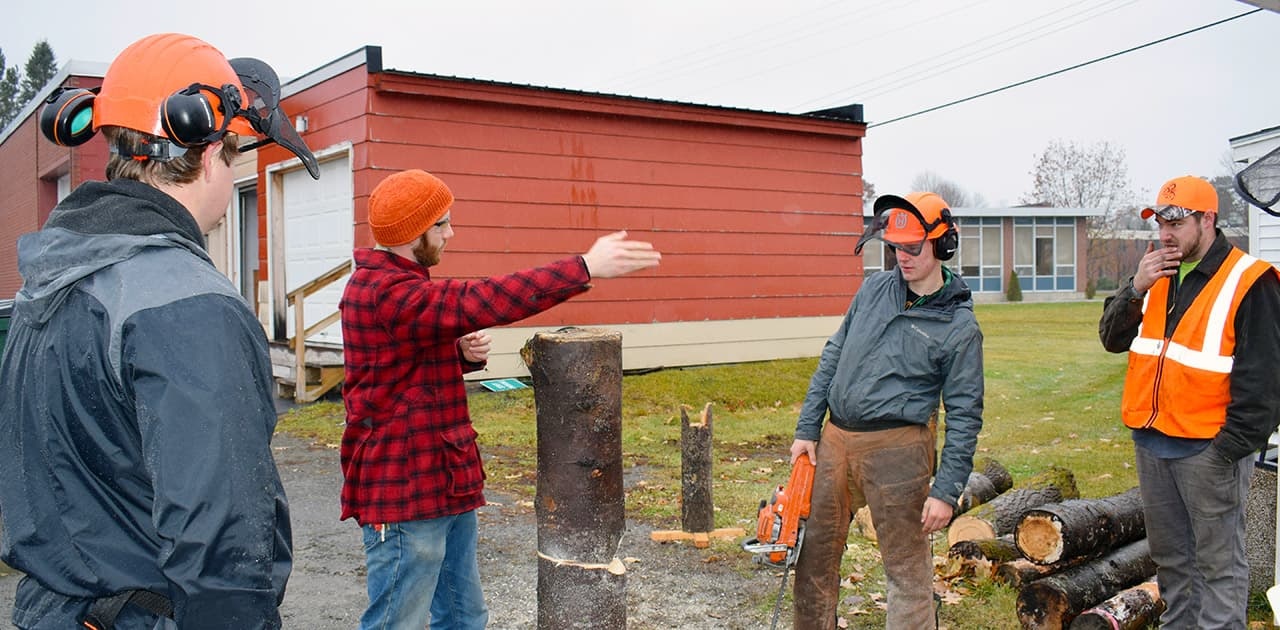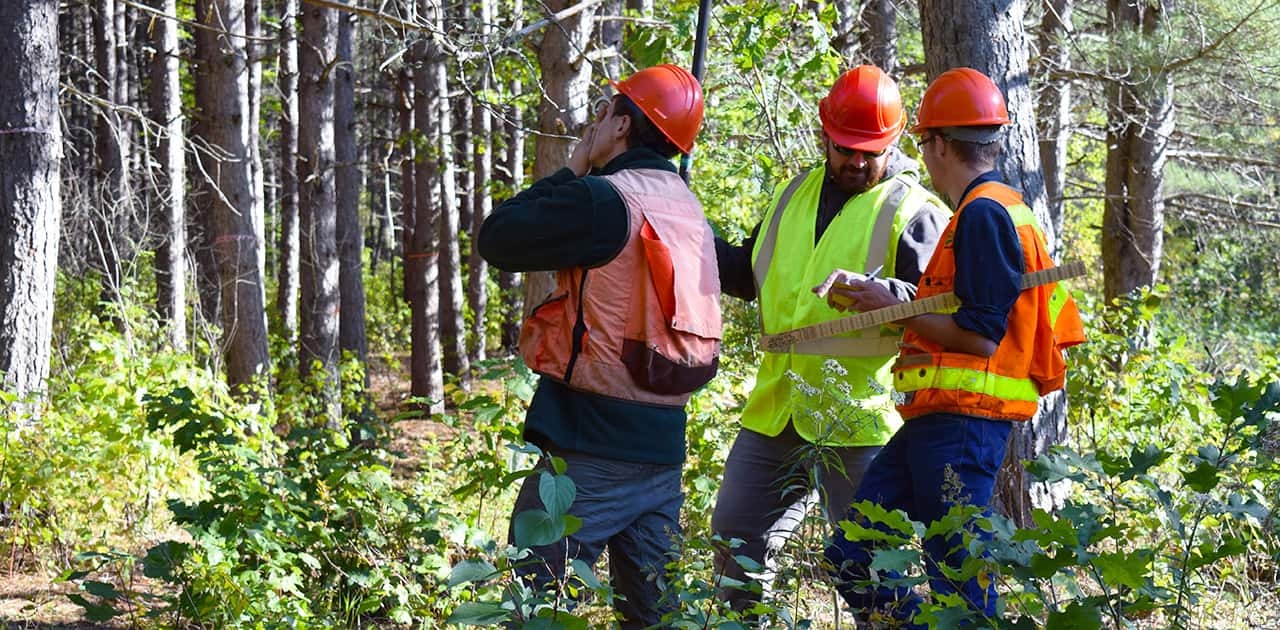
Career Opportunities in Applied Forest Management
This is a great time to seek a career in forestry! The ratio of jobs to graduates is at an all-time high, and that ratio is only expected to increase. Changes in the forest industry have created many new, technologically advanced positions.
Graduates find work as –
- Foresters
- Forest technicians
- Forest rangers
- Rangers for the Maine Forest Service
- Forest operations
- Rangers for federal agencies such as the Bureau of Land Management or the U.S.D.A. Forest Service
- GIS specialists
Potential employers include –
- Consulting foresters
- Land management companies
- Forest industry
- Forestry, conservation, and agriculture departments of the state and federal governments.
- Logging contractors
- Surveyors
Employers who have hired our graduates in recent years include:
- American Forest Management
- Irving Woodlands LLC
- James W. Sewall Company
- Landvest
- Maine Bureau of Parks and Lands
- Maine Forest Service
- Maine Land Use Regulation Commission
- Seven Islands Land Company
- U.S. Forest Service
- U.S. Fish and Wildlife Service
- Wagner Forest Management, Ltd.
Foresters
Foresters are land managers. The job varies according to the size of the company or agency. However, foresters develop management plans and manage land based on the goals determined by the landowner. They oversee and implement operations from road building and harvesting, to tree planting and intermediate operations. Within larger companies, foresters may specialize in one phase of management, such as log buying or forest inventory. Foresters need various skills from engineering to personnel management.
While some companies have placed our graduates directly into forester positions, several local companies prefer to have employees with baccalaureate degrees. Those employers worked with UMFK to develop a baccalaureate degree in business with a concentration in forestry. Both degrees, Associate of Science Applied Forest Management and Bachelor of Science Business Management Major, can be completed in four years.
Forest Technicians
Technicians carry out the day-to-day tasks of forestry. They provide skills in areas such as forest inventory, boundary surveying, timber marking, timber harvesting and road layout, and the supervision of harvesting, thinning, and planting crews. Although much of their time is spent in the field, modern forestry requires a strong background in computers and spatial technologies such as geographic information systems (GIS) and global positioning systems (GPS). Technicians also need strong communication skills to communicate in either spoken or written form with their superiors or to various forestry crews under their supervision. UMFK graduates have these skill sets.
In Maine, forest technicians and foresters compete for entry level positions. Forest technicians generally have stronger field skills. However, individuals seeking advancement, whether in industry or government, should consider a baccalaureate degree. One outstanding option for an industry position is UMFK's Bachelor of Science in business management. This degree is recommended by local industry representatives. Government employers may prefer UMFK's Bachelor of Science in Environmental Studies.
Forest Rangers
Forest rangers are in the business of forest protection. Their job involves the detection, prevention, and suppression of forest fires. Additionally, the job involves a great deal of public education. In some states, forest rangers are involved in prescribed burning. This is a forest management tool used in forest regeneration, to reduce fuels and fire potential, and to enhance wildlife habitat.
In Maine, forest rangers have the added duty of enforcing forestry and environmental law. A Maine forest ranger's work includes preparing and updating fire action plans, training firefighters, and supervising suppression operations. They patrol assigned regions and conduct equipment inspections. They also report and prosecute violations; investigate suspicious fires and suspected criminal activities; and conduct public information and education programs. Their enforcement duties also involve preparing records and reports that are used by the Maine Attorney General.
Students wishing to pursue careers in administration, or who wish to seek advancement within government agencies, must consider a baccalaureate degree. UMFK offers such an opportunity through its Bachelor of Science in Environmental Studies and its Bachelor of Science Degree in Rural Public Safety Administration.
Forest Operations
Forest operators include equipment operators and crew supervisors. A recent trend has emerged where the forest industry is seeking forestry-educated individuals to run wood processors and other equipment. Several recent graduates are working in such positions. Others have become contractors and are running their own harvesting and operations companies. The UMFK business management major, coupled with a forestry degree, is a useful combination for individuals seeking careers in the business side of forestry. Both degrees can be completed in four years.
Park Rangers
Park rangers generally work in state or national parks. Their primary responsibilities involve such tasks as visitor interpretation, campground management, and resource protection. Many positions involve basic law enforcement and fire control. A background in criminal justice or public safety is useful here. UMFK has a strong criminal justice program. Perspective students should investigate UMFK's Associate of Science Degree in Criminal Justice and the baccalaureate degree in Rural Public Safety Administration. Both degrees are available online.
Park rangers who work as interpreters usually have training in an area of specialization. For example, many park rangers at the Grand Canyon are geologists. UMFK offers many such specializations through its degrees in forestry, environmental studies, and biology.
GIS/GPS Technicians
Geographic information systems (GIS) continues to provide many career opportunities for our students and graduates. There have been an increased number of paid internships in GIS and global positioning (GPS) for our students. Graduates in forestry have enough background in GPS and GIS to qualify as technicians for the growing GIS "Industry." GIS technicians perform digitizing (mapping), GPS data collection, and basic GIS tasks. State government and private corporations currently have openings for mapping or "cartographic" technicians. Students seeking employment as a GIS specialist, may further their studies in two educational options: the GIS concentration under the Computer Systems Administration Major or one in the Environmental Studies Program. GIS specialists have more extensive training in database management, programming, and geospatial analysis, and currently are sought after by industry. Both educational options at UMFK provide graduates with the skills to compete in this growing field. UMFK is a member of the Maine GIS Education Consortium, a group of University of Maine System Schools actively promoting GIS undergraduate education and post-graduate educational opportunities.
